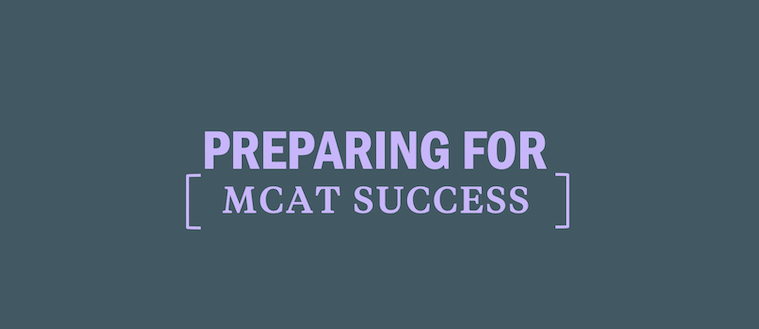How Long Should I Prepare for the MCAT?
This question can be a difficult one to answer because there are often many factors that you must consider, such as how comfortable you feel with the content, how much time you have before applications are due, what score you are looking to achieve. According to Princeton Review, most students who achieve strong scores put in between 200 and 300 hours of studying during a time span of 3-6 months. Yep, it’s a LOT of studying!
The first thing you should decide before determining how long you should study for the MCAT is when you want (or need) to take the exam. If your deadline to apply to medical school is quickly approaching, you may have to sign up for a test date that is just a few months away, which will certainly cut short the amount of time you have to study for the exam. Be proactive in your research of upcoming test dates and when applications are due so that you can allot the amount of time you will need to study according to those deadlines.
As mentioned above, there are many factors other than exam date that you must take into account when deciding how much time you are going to put into your MCAT prep. Below, we have outlined just a few things to keep in mind.
1.What is your level of familiarity with the material?
If you are a pre-med student, you have taken all of the pre-requisite courses, and you generally have a strong understanding of the content that is on the MCAT, then you will likely be able to spend less time covering content and more time going over test-taking strategies and doing practice. However, if you are a few years out of undergrad and it’s been a while since you’ve been exposed to most of the material, you may need to factor more time into your study schedule for a review of these topics. This is not to say that students who have a strong science background don’t need to study as long, however, it just means that they might choose to spend their hours preparing differently from someone who is learning the material for the first time.
2.What is your schedule like?
A pre-med student who works a part-time job, volunteers on the weekends, and plays club sports 4 nights a week probably has less time in her schedule than a pre-med student who is only enrolled in a few classes and goes out with her friends once a week. When trying to determine how long you should study for the MCAT, it is important to consider what your schedule currently looks like in terms of school, work, extracurriculars, and your social life. What are you willing (or not willing) to sacrifice each day to get those study hours in? If your current schedule is pretty open, and you are willing to put in a few hours of studying each day, you can probably expect to feel prepared after a few months. However, if you are currently balancing a heavy workload with a job and other activities, you might have to plan to extend your studying over a longer period of time to reach your target number of hours.
When factoring your schedule into your decision-making process, you should also consider how your study habits might play into the mix. If you know that you work best when you can sit down for three hours straight and go over content, then try to realistically assess how many days out of the week you would be able to do that given your current schedule. Conversely, if you study better in multiple shorter spurts of time, consider how those blocks of time might be able to work into your schedule.
Another thing to remember with this is that studying LONGER does not always mean studying BETTER. If you are someone who tends to lose motivation when projects or things are spread out over a long period of time, it is likely best to keep your studying condensed into a few months as opposed to spread out over many months or a year.
Ultimately, the biggest piece of advice that Princeton Review tells students is to start as early as possible, so that you have ample time to get in all of the study time you need before test day. While some students may need more study time, and some students may need less, it is important to remember that you must plan to study for the amount of time that is best for you, your schedule, and your goals.
